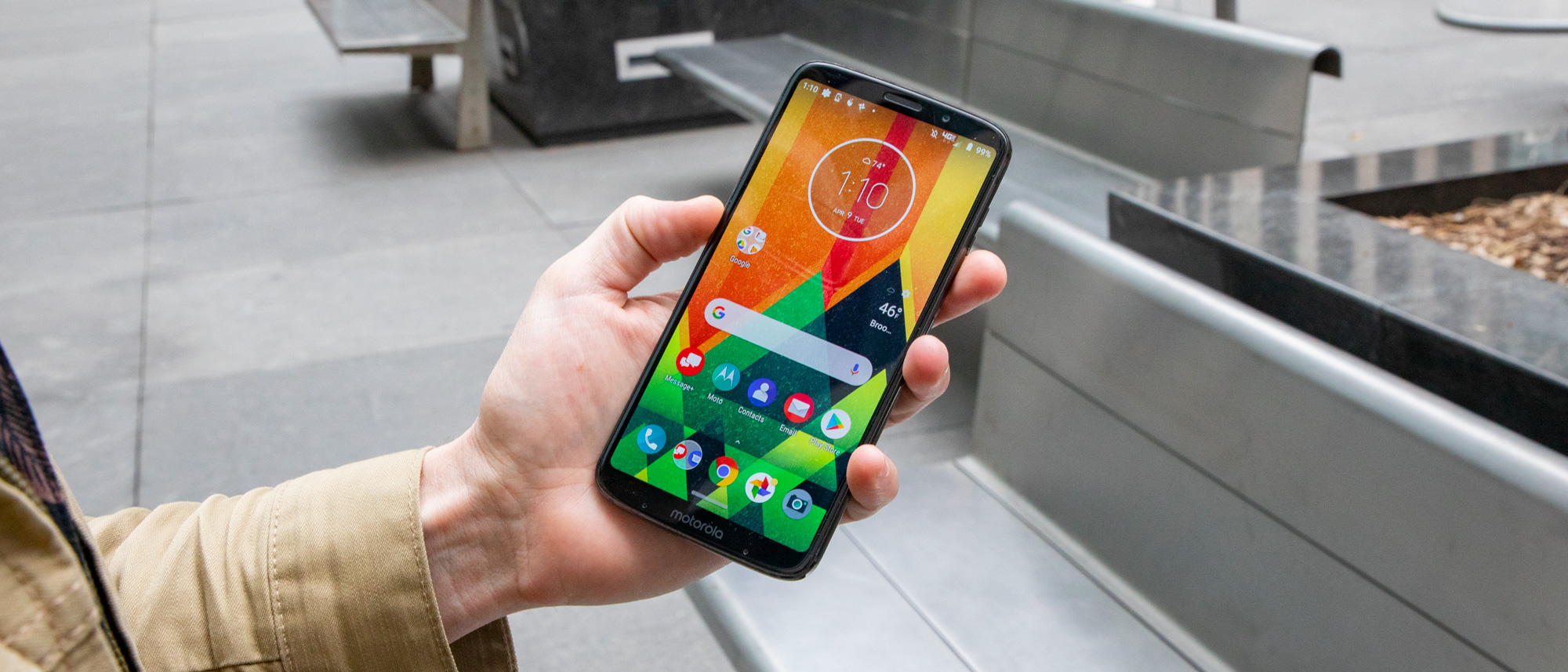Why you can trust TechRadar
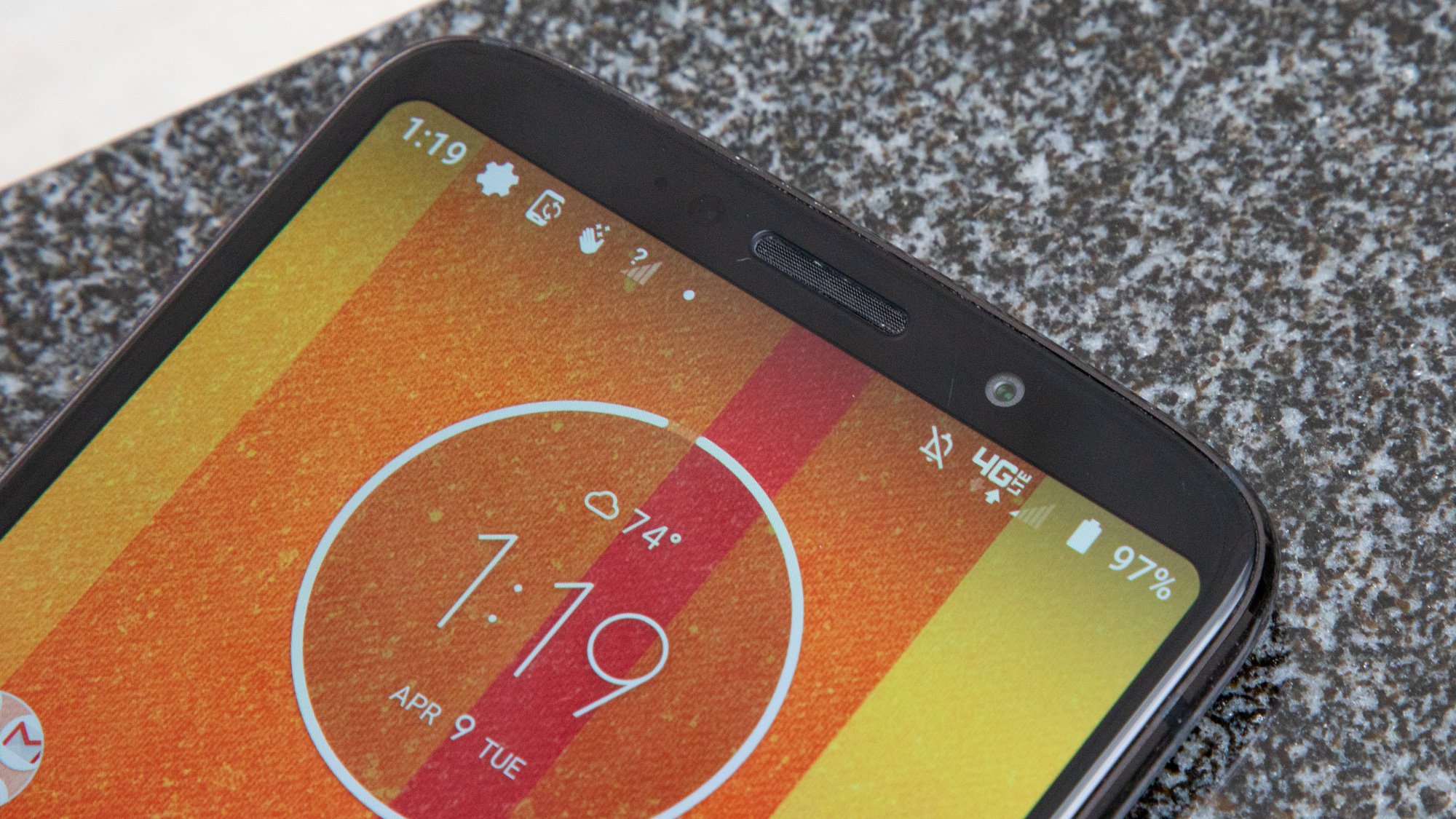
Display
As previously mentioned, the Moto Z3 keeps the 6.01-inch (2,160 x 1,080) 18:9 display of the Moto Z3 Play, which is large, bright and crisp. It’s not quite the resolution of expensive flagships, but the Full HD display is certainly a step up from the lower-priced G7 phones with their HD (1,570 x 720) screens.
Sadly, the Moto Z3’s display is a step down in resolution of the 5.5-inch Quad HD screen (2,560 x 1,440) in the Moto Z2 Force, though it is slightly larger.
Also notable for phones in 2019: the display has a black bar at the top that houses the front-facing camera, leaving the display an unbroken rectangle. That will please anyone who refuses to compromise on an unblemished display, but with more and more top-tier phones attempting workarounds for better screen-to-body ratio (like the Samsung S10 series’ punch-hole display or the Mi Mix 3’s sliding front screen), it makes the Z3 look less flagship.
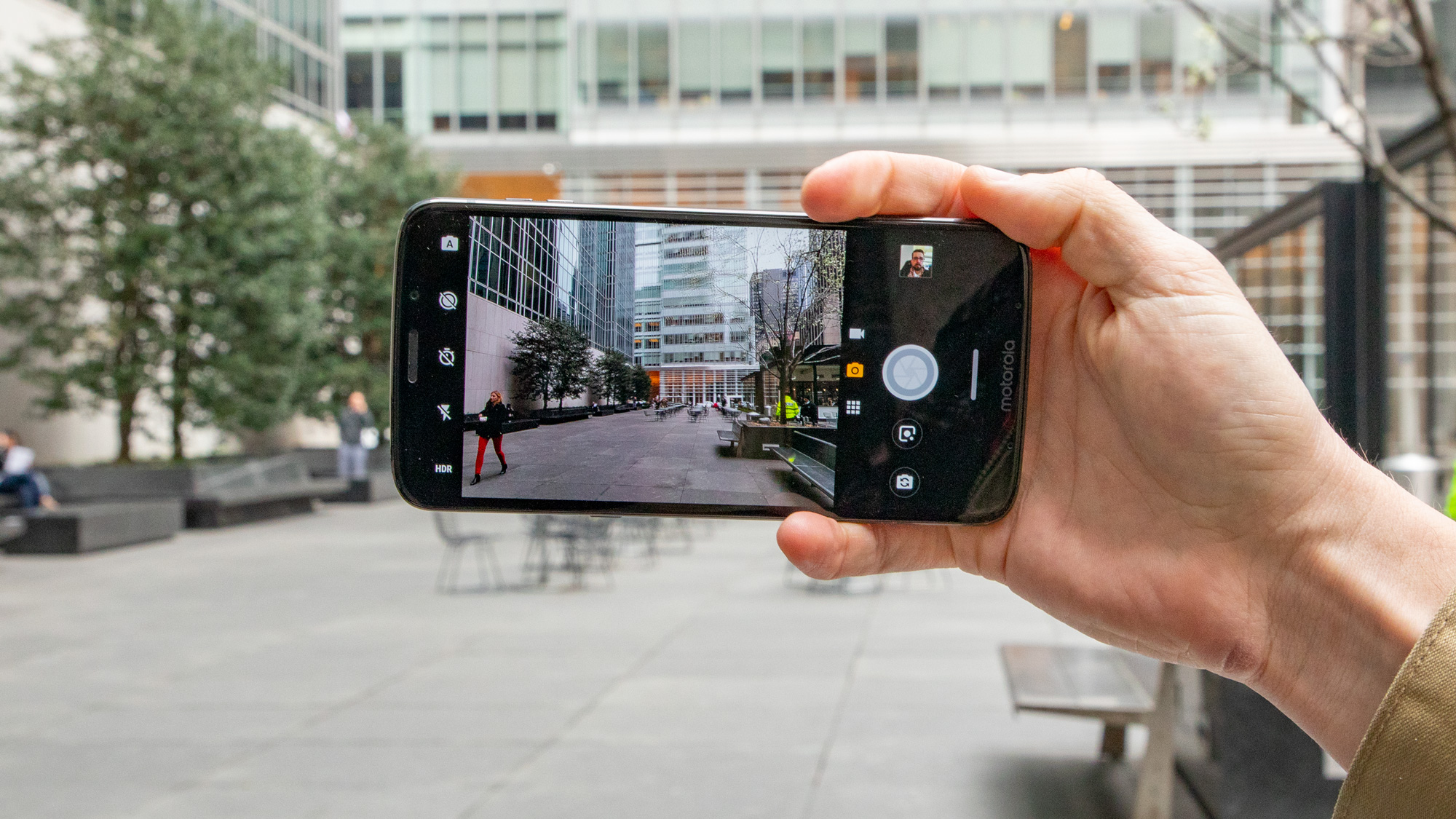
Camera
The Moto Z3 packs a 12MP f/2.0 lens paired with a 12MP f/2.0 monochrome for low-light photos, and shoots a respectable but unimpressive 2160p@30fps video or up to 1080p@60fps.
The phone’s main camera suite manages decent daytime photography but suffers in low light. This is expected from the basic camera setup. Most flagships these days sport two or even three cameras – but they’re varied in field-of-view and/or telephoto capabilities. Compared to those, the Z3’s setup is limited to point-and-shoot, managing an 8x digital zoom that comes out grainy.
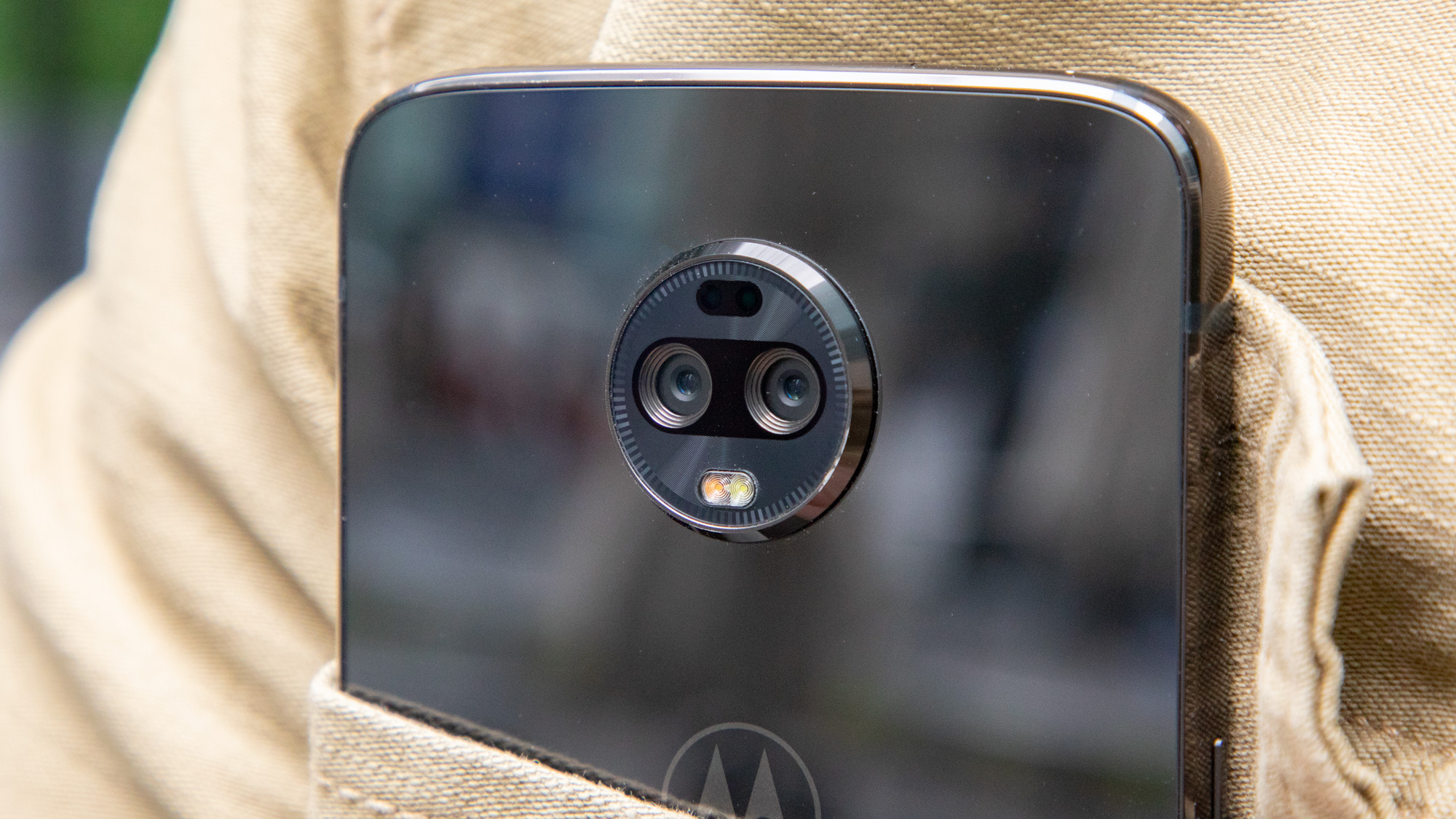
Of course, this isn’t just due to the Z3’s lower price point – it’s a compromise of design, too. The central camera blister has roughly the same dimensions as those of the entire Moto Z line so that it can work with past and future Moto Mods. In that sense, the phone series may never build out more than two lenses. But as we’ve seen with the Samsung Galaxy S10e’s twin shooters, it’s not the amount of cameras that necessarily limits your capability, but how they’re used.
And the Moto Z3 makes decent use of its lenses. The software has the expected plethora of modes, from Portrait to spot color to a cute (if spotty) “cutout” option letting you slice out a foreground object and slip in a background. There’s even a text-recognizing mode that lets you convert typed words (on a screen or page) into a simple PDF or word doc. Handy.







The 8MP front-facing camera is, well, fine. It works for the immediate subject, but expect the backgrounds to blow out if they're bright and sink into darkness if they're the opposite. There are a few cute modes, like group selfie, that essentially creates a mini-panorama of about one photo-width on either side of the central subject.
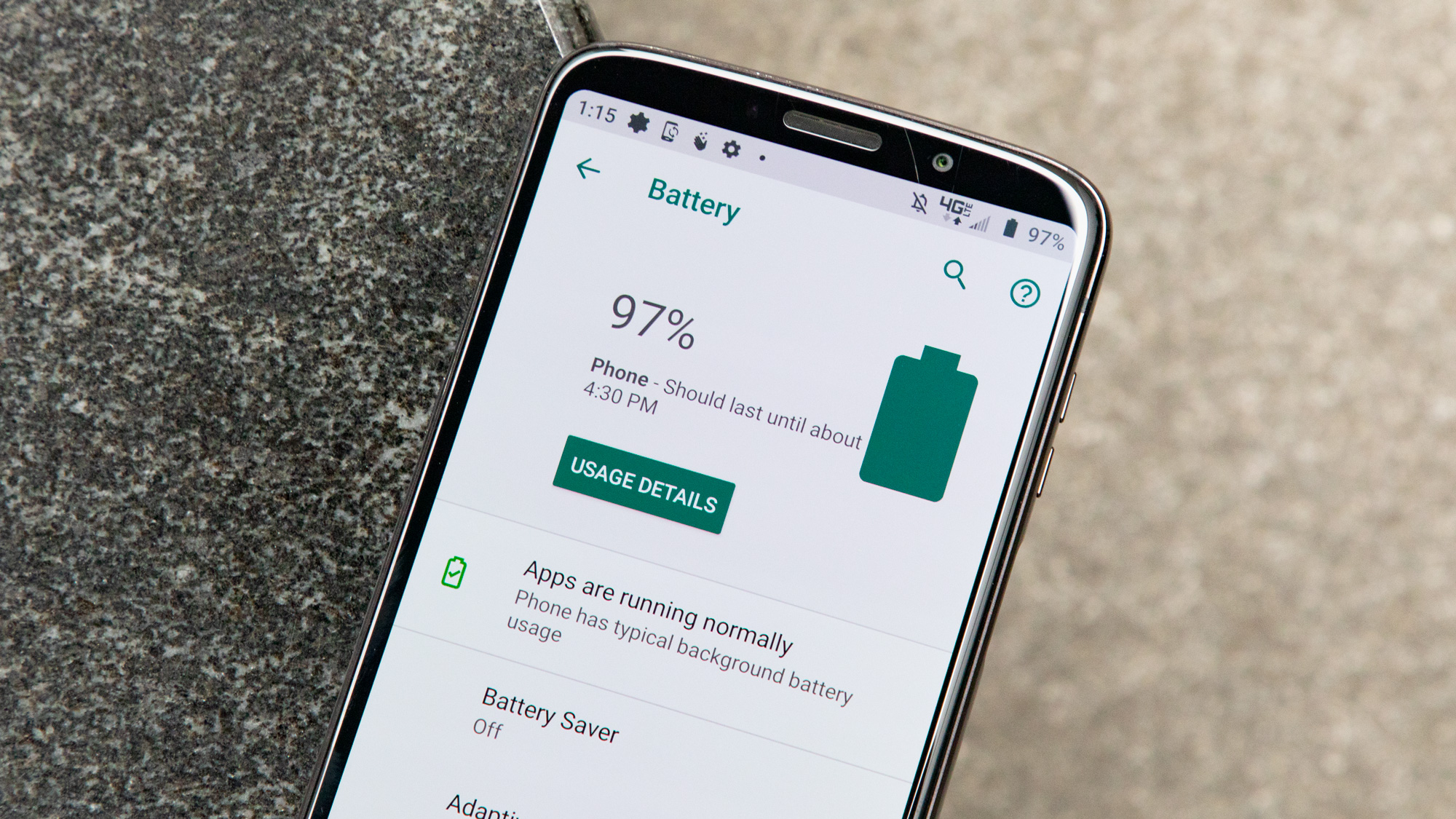
Battery life
The Moto Z3 packs a 3,000mAh battery, which lasts through the end of the day without serious issue. It uses Motorola’s 15W Turbopower brand of fast charging, which doesn’t keep up with the much higher wattage of Qualcomm’s Quick Charge 2.0, 3.0 (18W) and 4.0+ (27W) formats. Still, any fast charging is better than none.
But that’s not whole battery story. The Moto Power Pack mod adds another 2,220 mAh, which should provide another 16 hours of juice, per Motorola’s site. Customer reviews aren’t entirely positive for the add-on, though, with some decrying its quick burnout and charging issues while others complain that it doesn’t have a port of its own, and must be charged through the Moto Z3.
On the plus side, unlike battery pack cases, the Power Pack mod doesn’t obstruct the side buttons or bottom USB-C port.
Current page: Display, camera and battery life
Prev Page Introduction, price analysis and design Next Page Performance and ModsDavid is now a mobile reporter at Cnet. Formerly Mobile Editor, US for TechRadar, he covered phones, tablets, and wearables. He still thinks the iPhone 4 is the best-looking smartphone ever made. He's most interested in technology, gaming and culture – and where they overlap and change our lives. His current beat explores how our on-the-go existence is affected by new gadgets, carrier coverage expansions, and corporate strategy shifts.
